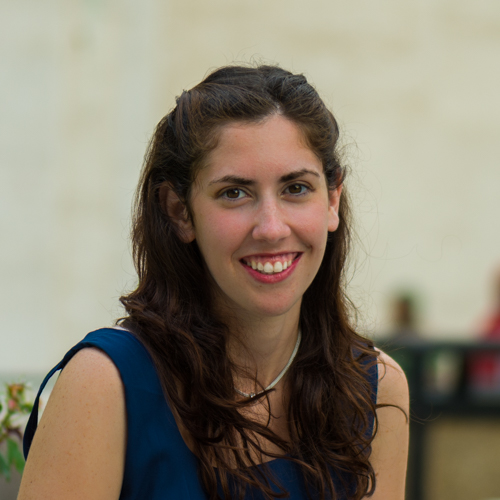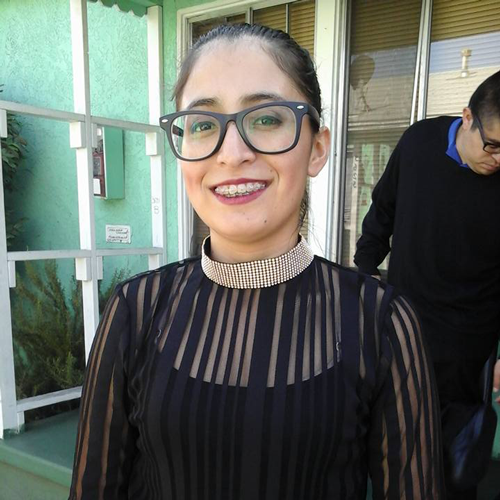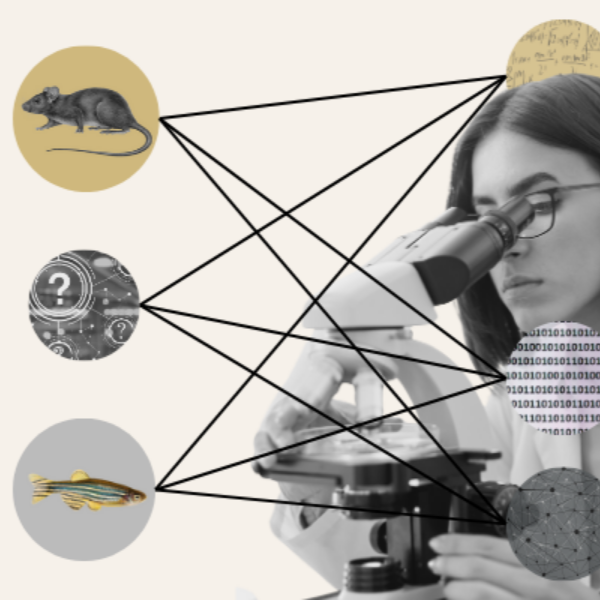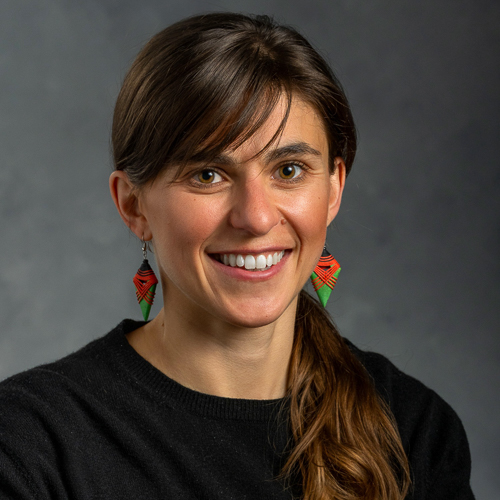Koenig, Rojas, and Young Named NSF Graduate Research Fellows
Three Department of Integrative Biology graduate students were recently awarded Graduate Research Fellowships from the National Science Foundation: Lauren Koenig, Connie Rojas, and Allison Young.
The National Science Foundation's Graduate Research Fellowship Program is a prestigious and highly competitive grant that recognizes and supports outstanding graduate students in NSF-supported science, technology, engineering, and mathematics disciplines who are pursuing research-based graduate degrees and demonstrate exceptional promise of contributing significantly to both scientific innovation and teaching. The fellowship is only awarded to 2,000 applicants (out of 13,000 applicants across the country each year). Winners receive an annual stipend of $34,000 and a $12,000 education allowance for tuition and fees (paid to the institution) for up to three years, and opportunities for international research and professional development. The purpose of the NSF Graduate Research Fellowship Program is to help ensure the vitality and diversity of the scientific and engineering workforce of the United States.
 Lauren Koenig
Lauren Koenig
Lauren Koenig is a first-year doctoral student in the Rowe Lab. She is the co-editor-in-chief for the Scientista Foundation, an organization that serves as a network for female students and professionals in STEM fields, hosts an annual research symposium, and publishes an online magazine with writers from around the world. She was recently awarded a Ford Foundation Predoctoral Fellowship Honorable Mention and a John R. Shaver Research Fellowship for Graduate Students in the Department of Integrative Biology from MSU.
Lauren's dissertation examines the evolution of pain resistance in grasshopper mice, a carnivorous rodent found in the Southwestern United States that consumes biochemically protected prey. "I am specifically interested in how the mice feed on pinacate beetles, an insect that deters most predators with a noxious, burning spray," Lauren explained. Lauren plans to map the unique predatory behavior of the grasshopper mice onto adaptations in their physiology or genetics that code for pain tolerance. She elaborated, "Exploring this question at multiple levels (i.e., behavioral, physiological, and molecular) will tell us more about pain receptor plasticity and the ways that organisms can evolve tolerance or immunity to painful venom or poison." Understanding the structure and function of these receptors will help scientists design drugs that can certain types of pain in patients.
This grant will allow Lauren to pursue her research questions in expanded and creative directions. "I am extraordinarily grateful and honored to receive this award," Lauren said. “I will be able to spend more time at my field sites at the Santa Rita Experimental Range & Wildlife Area near Tucson, Arizona, and Northern Arizona University, and match my travel to the climate conditions that are best suited for data collection." She stated, "I am also excited to have the resources to pursue my plans of taking my project to a more big-picture level; not only will I be studying the adaptations of my study species at the organismal level, but I hope to tackle some bigger evolutionary questions about how these adaptations play a role in shaping the desert ecosystem."
The grant also focuses on “broader impacts.” Lauren is committed to improving the status of women in STEM. "As I progress throughout my career, I hope to take on a greater role as a mentor and help younger students the way that my advisers helped me. I am incredibly appreciative of Matt and Ashlee Rowes’ support and recommendations."
 Connie Rojas
Connie Rojas
Connie Rojas is a second year graduate student in Dr. Kay Holekamp’s Behavioral Ecology Laboratory. She is currently the President of the MSU chapter of the Society for the Advancement of Chicanos/Hispanics and Native Americans in Science, Treasurer of the grassroots Michigan Indigena/Chicanx Community Alliance, and Colloquium Chair of the Ecology, Evolutionary Biology, and Behavior Graduate Group. The National Science Foundation Graduate Research Fellowship is the third award Connie has received recently, in addition to the Tracy A. Hammer Graduate Student Award for Professional Development and the MSU Council of Graduate Student's Disciplinary Leadership Award.
“I am happy to have been awarded this prestigious National Science Foundation Graduate Research Fellowship," Connie said. "This award has not been the product of excelling in graduate school or even college. It has been the result of working tirelessly for my dreams and goals since my family moved from Oaxaca, Mexico to Los Angeles, California over a decade ago," she explained. "It feels great to be recognized as an aspiring behavioral ecologist who is not only working towards a STEM doctorate but is also dedicated to her community." Connie further elaborated, "I want to thank my family for their support and my advisors Dr. Kay Holekamp, Dr. Kevin Theis, and Dr. Vanja Klepac-Ceraj for their superb recommendations and career guidance.”
Connie will use the NSF Graduate Research Fellowship to fund her tuition, dissertation research, travel, and personal expenses as a graduate student. "The award funds will allow me to exclusively focus on my dissertation research without having to worry about applying for additional funding or employment."
For her dissertation, Connie will use field behavioral data, next generation sequencing technologies, and computation tools to study the stability, structure, and functional contributions of the gut microbiome of wild spotted hyenas, as well as the host socioecological factors that potentially affecting the gut microbiome She will be travelling to the field, the Masai Mara National Reserve in Kenya, this upcoming academic year.
Connie's career goal is to become a tenure-track professor at a research-intensive university. Apart from conducting research and teaching, she plans to spend a considerable amount of her time and effort devoted to empowering the Latino community, mentoring undergraduate students, and increasing student retention in STEM fields, especially that of underrepresented groups.
-2015-003.png) Allison Young
Allison Young
Allison Young is a second year graduate student in the lab of Fred Dyer. Her dissertation extends the Dyer Lab's bee foraging behavior research. "My research focuses on how individual honey bees make moment-to-moment foraging decisions about when to search for new resources and when to use a known research," Allison said. "I'm also investigating how those decisions relate to species differences in activity and lifespan."
Allison's research will provide a greater understanding of factors shaping the foraging decisions of honey bees, the most important pollinators in the world. This research has the potential to give us a greater understanding of how adaptive modulation of search behavior plays a role in flower visitation and pollen dispersal. In addition, Allison’s findings will provide an innovative perspective on the relationship between behavior and aging by linking species differences in lifespan to individual decision-making. It will set the stage for a comprehensive study of evolutionary and developmental correlates of the aging process.
"I feel very honored to receive this award,” Allison revealed. "I am excited about the many opportunities this award will allow me to pursue as I begin my research career." The NSF grant will fund Allison's upcoming field work in India, where she will be studying the foraging behavior of three Asian honey bee species. Additional experiments studying the European honey bee (Apis mellifera) will be conducted in Michigan beginning summer 2017.
All three award recipients are seeking dual degrees in Integrative Biology and Ecology, Evolutionary Biology, and Behavior at MSU. They were among 15 Michigan State University graduate students to win this award.



